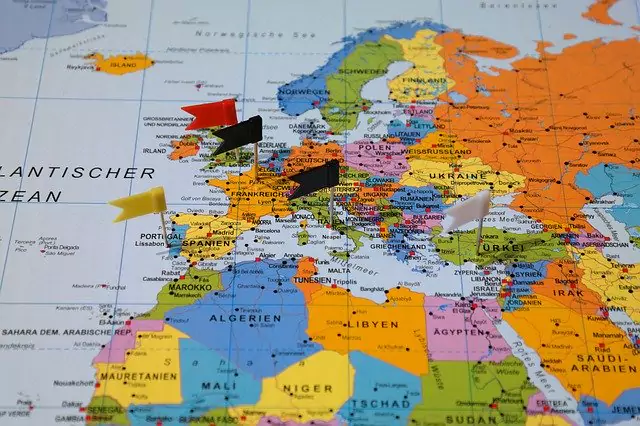By Yasmin Balent
Globalization and digitization are taking today’s economy to a whole new level. Customers, suppliers and business partners are suddenly spread all over the world, living in different time zones and speaking different languages. Companies, even the small ones, need to optimize and adapt their business models and strategies to stay a market leader of an international business.
This change often presents a challenge and requires a lot of organization and planning. But change is not the only challenge. Once you have mastered this, the next hurdle is coming up in fact to do business with people of different cultures, having different languages and with people doing things differently.
We have put together some helpful tips and tricks for you.

1. Find out what the other person wants
If you are in contact with business partners or customers from abroad, you need to be able to observe and listen well. Only in this way can you find out what your customer value, what he or she wants and how you can fulfil his or her wishes quickly. Once you have found out all this, it is often up to you to adapt your behavior so that the cultural differences to your counterpart are not that big anymore. This is the only way to build trust, which is very important for a fruitful cooperation.
2. Building trust
Intercultural communication is a broad topic and the differences worldwide are very large and diverse. Therefore, you should always, at least superficially, inform yourself in detail about the cultural differences from the respective target country.
Trust in an international business context builds on personal relationships. This means that your interest in the person takes precedence over your interest in the business with whom you are trying to cooperate. This is sometimes tedious, but ultimately effective and long-lasting.
3. International business is the possibility to speak several languages
Even if English is the common business language and almost every businessman or woman is able to speak it, it is beneficial to speak other languages. In the best case that would be the language of the customer.

Without a language barrier, trust will build up faster and better. In addition, your counterpart will get the impression that you want to become a part of their culture, which in turn can have a positive effect on any negotiations taking place.
Furthermore, people living in countries such as France and Spain attach great importance to speaking their language.
4. Openness and tolerance
Of course, openness is a basic prerequisite for being active as a businessman or woman. In an intercultural context, it requires a special degree of openness. One should not be afraid of body contact, as it is common in southern regions such as Spain or Italy to greet each other with a kiss on the cheek or to hug each other instead of just shaking hands. Openness to new food or drink is also an important point, in other countries it is quite natural for a meeting to take place over lunch or dinner. It is often considered rude not to join in dining.
Tolerance is also a very important topic for international business. Not only in the country of origin in relation to your fellow men and your colleagues, also abroad. There are many customs and habits that you will encounter abroad that are unknown to you. You should experience and accept them without judging them.

5. Do’s and Don’ts for international business
-The
meetings are very cordial, you greet each other with cheek kisses.
-The normal working day does start at 10:00 AM
-At a business dinner, you talk about personal issues, such as the family.
-Spanish people appreciate it when business partners try to speak Spanish.
-Great
importance is attached to table manners
-The business is get discussed after the meal.
-Expensive garments convey the feeling that the meeting is of great importance
-Never bring up the topic “Second World War”
-The French expect people to speak French.
-You need to be very polite – thank you, please, you’re welcome is very normal language
-Good manners and punctuality always score points in England
-Business is usually not discussed, when you are invited to dinner,
-The Brits like exclusive Gifts
-Don’t be too loud or euphoric.
-First eat pasta and then do business
-Family is the first priority and therefore families are often integrated into the business
-Italians like it when you’re on time and flexible.
-Class clothing, well received
-Topics such as the mafia or interior politics are left out.
-Italians like lively and confident people.
-Punctuality comes first
-Everything is recorded in writing
-Gender equality. It is very important that a woman gets treated in the same way as the man.
-A handshake is binding
-Hierarchy has a great significance, decisions are made only from the very top
-Facts and figures are very popular
-Try to have ss little physical contact as possible during the greeting
-First and foremost, the relationship is important, you are first examined carefully over a longer period of time before going into business.
-You should never eat all food, this is considered as rude.
-One does not talk business over dinner
-Direct and open criticism are considered as rude

Your next Meeting
Now that you know the basics, there is nothing you have to be afraid of for your next business trip abroad.
If your next meeting should take place within Europe, feel free to have a look at our website. We offer you an Air Taxi service. How that exactly works, you can find out here. Basically you can take off with our private jet from your desired airport and also land there where it is the best for you.
If you are not sure if it is worth it for you to charter a private jet, read our blog “Question, when is it worth to take an air taxi?“.
Don’t hesitate to read also our blog about the 5 challenges every company secretary is facing and how to overcome them.
Calculate your next trip yourself with our price calculator or contact us at info@flyaeolus.com or by phone at +32 (0)3 500 9082.
We look forward to your inquiry!